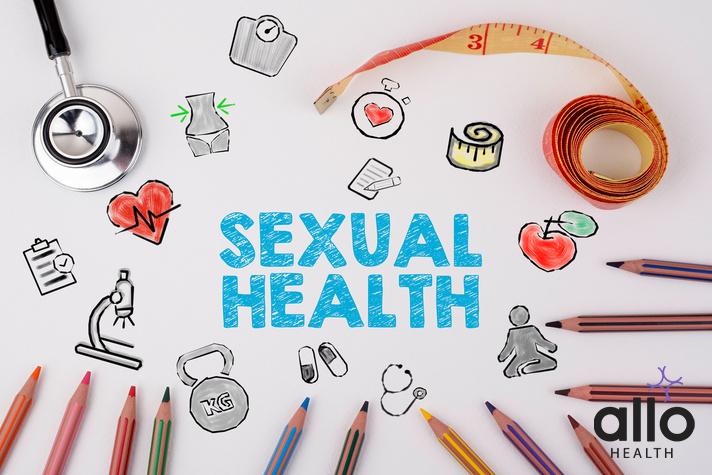Addressing Consent Violations

Allo Health is dedicated to personalized well-being, offering support and trusted information tailored to individual health goals. The platform emphasizes human-generated content, led by a distinguished medical team of experts, including physicians and sexual health specialists. Their commitment to credibility involves rigorous fact-checking, authoritative research, and continuous updates to ensure accurate, up-to-date information. Allo Health's unique approach goes beyond conventional platforms, providing expert-led insights and a continuous commitment to excellence, with user feedback playing a crucial role in shaping the platform's authoritative voice.

Dr Thanushree, has her MBBS from Kanachur Institute of Medical Sciences, Mangalore
Why This Was Upated?
Our experts continually monitor the health and wellness space, and we update our articles when new information became available.
Updated on 10 February, 2025
- Article was updated as part of our commitment to diversity, equity, and inclusion.

"The following blog article provides general information and insights on various topics. However, it is important to note that the information presented is not intended as professional advice in any specific field or area. The content of this blog is for general educational and informational purposes only.
Book consultation
The content should not be interpreted as endorsement, recommendation, or guarantee of any product, service, or information mentioned. Readers are solely responsible for the decisions and actions they take based on the information provided in this blog. It is essential to exercise individual judgment, critical thinking, and personal responsibility when applying or implementing any information or suggestions discussed in the blog."
Consent is a fundamental principle in any healthy relationship, personal or professional. It forms the bedrock of mutual respect and trust. However, consent violations, which occur when one’s autonomy and boundaries are disregarded, are all too common. These violations can take many forms, ranging from physical and sexual misconduct to emotional and psychological breaches. Addressing consent violations is critical for fostering safe and respectful environments. This article will explore the importance of understanding consent, recognizing violations, and implementing effective measures to address and prevent them.
Understanding Consent
Consent is an agreement between participants to engage in an activity. It must be:
- Voluntary: Given freely without coercion or pressure.
- Informed: The person consenting must have all the information necessary to make the decision.
- Specific: Consent to one activity does not imply consent to others.
- Reversible: Anyone can change their mind at any time.
Understanding these principles is essential in recognizing and respecting others’ boundaries. Consent should be clear, enthusiastic, and ongoing in any interaction, especially those involving intimacy.
Recognizing Consent Violations

Consent violations occur when these principles are not respected. They can manifest in various ways:
- Sexual Misconduct: This includes any sexual activity without clear, voluntary, and informed consent. Examples include sexual assault, rape, and inappropriate touching.
- Emotional and Psychological Breaches: This includes manipulation, gaslighting, and any behavior that undermines an individual’s autonomy or exploits their trust.
- Physical Violations: Non-sexual physical interactions, such as unwanted hugging, touching, or physical intimidation.
- Digital Misconduct: Sharing intimate images or messages without consent, cyberstalking, or digital harassment.
Recognizing these violations is the first step towards addressing and preventing them.
Addressing Consent Violations
When a consent violation occurs, addressing it promptly and effectively is vital. The following steps outline a comprehensive approach to dealing with these incidents:
-
Believe and Support the Victim
The first response should be to believe and support the person who reports a consent violation. Many victims fear they won’t be taken seriously or that they will face blame. Creating a supportive environment where they feel safe to speak up is crucial. Listen to their account without judgment, validate their feelings, and assure them that their experience is taken seriously.
-
Provide Immediate Care and Resources
Victims of consent violations may need immediate care, both physical and emotional. Provide access to medical care if necessary and offer resources such as counseling services or support groups. Ensuring they have access to professional help can aid their recovery and provide the support they need.
-
Implement Fair and Transparent Investigations
Investigations into consent violations must be fair, transparent, and thorough. Could you set up clear procedures for investigating complaints that respect the rights of all parties involved? This process should include:
- A confidential reporting mechanism.
- Timely and impartial investigations.
- Protection against retaliation for those who report violations.
-
Take Appropriate Disciplinary Actions
Based on the investigation findings, appropriate disciplinary actions should be taken against those who violated consent. These actions should be consistent with the severity of the violation and in line with established policies. Consequences might include warnings, suspension, or termination, depending on the context and seriousness of the incident.

24x7 AI backed chatbot for all your sexual health related queries
-
Educate and Train
Education and training are crucial in preventing consent violations. Training sessions on consent, boundaries, and respectful behavior should be mandatory. These sessions can help individuals understand the importance of consent, recognize violations, and learn how to intervene appropriately. Topics to cover include:
- The definition and importance of consent.
- How to obtain and give consent.
- Recognizing consent violations.
- Bystander intervention strategies.
-
Create a Culture of Respect
Fostering a culture of respect and accountability is key to preventing consent violations. This involves:
- Leadership Commitment: Leaders must demonstrate a commitment to respect and consent through their actions and policies.
- Clear Policies and Procedures: Establish and communicate clear policies on consent and respect. Ensure everyone knows the consequences of violating these policies.
- Open Communication: Encourage open communication about consent and boundaries. Provide platforms for individuals to discuss these issues and share their experiences.
-
Support for Bystanders
Empower bystanders to intervene when they witness potential consent violations. Provide training on safely and effectively intervening in situations where consent may be at risk. Encourage a community approach where everyone takes responsibility for maintaining a respectful and safe environment.
Addressing consent violations is a multifaceted process that requires a proactive and comprehensive approach. By understanding consent, recognizing violations, and implementing effective measures to address and prevent them, we can create environments where respect and autonomy are upheld. This supports the victims and fosters a culture of trust and safety for everyone. Remember, consent is not just a legal requirement but a fundamental aspect of human dignity and respect. Ensuring it is respected in all interactions is essential for a just and equitable society.








































